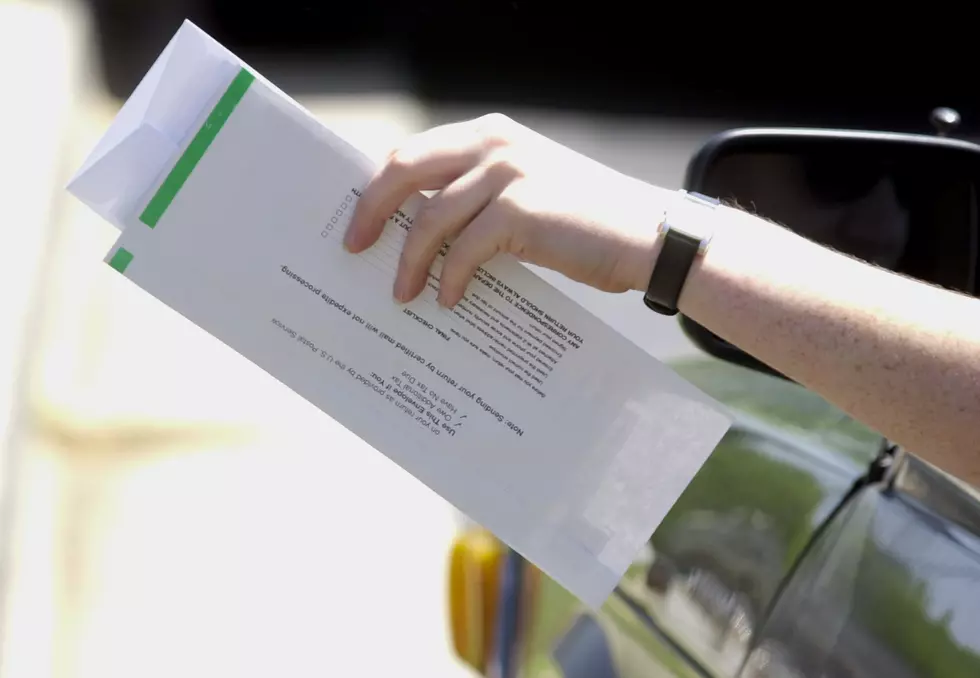
Is It Finally Time To Abolish The Personal Income Tax?
If you filed an extension of your 2013 taxes they are due today by midnight. Taxes are a lot like airline fares. Chances are the person sitting next to you on any flight paid either more or less for their seat than you did. Some take advantage of tax incentives others don’t.
Our Early Taxes
Between 1791 and 1802 the taxes paid to support the government came from distilled spirits, carriages, refined sugar, tobacco and snuff, property that was sold at auction, corporate bonds and slaves.
When the War of 1812 came along the nation’s first sales tax was enacted on gold, silverware, jewelry and watches. But in 1817, Congress got rid of all internal taxes and paid for all government services with tariffs on imported goods. Where is that Congress today?
The Civil War
Congress used the first personal income tax in 1862 to help finance the Civil War. If you earned between $600 and $10,000 you paid 3 percent of your income to the feds.
There were also sales, excise and the inheritance tax. In 1866, taxes raised more the $310 million in 1866 dollars. Collections would not reach that point again until 1911.
In 1872 Congress eliminated the income tax for the second time.
It was revived in 1894-95 until the Supreme Court decided that the income tax was unconstitutional because it was not apportioned among the states to conform to the US Constitution. It was kicked to the curb for the third time.
Where is that court today when we need them?
Taxes In The Twentieth Century
In 1913 the 16th Amendment to the Constitution gave Congress the authorization to tax both individuals and corporations. In 1918 taxes collected passed the one billion dollar mark for the first time. $5.4 billion by 1920.
The year 1943 brought the withholding tax on wages and increased the number of taxpayers to 60 million. Tax revenues rose to $43 billion by 1945.
Taxes In The Twenty-First Century
Today, in 2014 we are taking in an excess of $3 trillion dollars and will still have about a $560 billion dollar deficit. How on God’s green earth is that possible? You can’t fund government on $3 trillion dollars? Where does that money go?
Well, $845 billion is paid out to Social Security, $812 billion to Medicare and Medicaid, $456 billion to “122 other entitlement programs,” $594 billion on defense (the one everyone wants to cut), $576 on domestic spending, disasters, federal highways, etc., and $231 billion to pay the interest on the debt.
Leaving a big fat balance of $3.5 trillion dollars — Short $506 billion that we have to borrow from someone to keep from defaulting on the debt.
How long could you live that way without losing your home? You could if you could print your own money like the US can do.
How I Would Abolish The Income Tax
It’s pretty obvious that getting rid of the income tax is going to force some drastic changes.
Right now our $3.1 trillion dollar income consists of $1.39 trillion in individual income taxes, $1.02 trillion in Social Security collections, $315 billion in corporate taxes, and $259 billion in other taxes.
If we could reduce the $506 billion we need to borrow each year to zero we would be a little more than two thirds of the way to abolishing the $1.39 trillion income tax. So for a time we tighten our belts, keep borrowing the $506, but invest it in something that produces more than our bonds have to payout. Make borrowing pay.
We spend $456 billion on those other entitlements. Would it be possible to cut that by one third by combining programs that overlap or help similar groups of people? I think so.
So add another $152 billion to the $506 billion and that brings us to $658 billion we can invest. We’re half way there. If we could balance the budget and pay off our debt we’d save an additional $231 billion per year bringing us to $889 billion we can invest. But even those drastic measures still leave us half a billion short of our goal.
More drastic cuts would be needed.
Some Final Thoughts
Over a period of time the interest on the investments would more than offset the amount of taxes needed. The only down side would be some entitlements would have to be reduced or eliminated for a period of time and revisited later.
There may be some defense cuts possible but remember the reaction to the recent sequester as a debt cutting measure.
Government is just like your household. You either increase your income or cut your expenses or a combination of both.
The question to ask is, “How much would you be willing to sacrifice to take home your entire paycheck?” Every penny you work for would now go directly into your pocket. Not a dime to Uncle Sam from your labor.
Would you do it if you could?
More From KMMS-KPRK 1450 AM






![[POLL] Will You Got Back to Restaurants and Bars When They Open?](http://townsquare.media/site/8/files/2017/04/Adam-Berry.jpg?w=980&q=75)
![[POLL] Should wearing a mask in public be mandatory?](http://townsquare.media/site/8/files/2020/04/GettyImages-1213079528.jpg?w=980&q=75)
![[POLL] Will You Tune Into The Tom and Shane Saturday Show?](http://townsquare.media/site/8/files/2020/04/TomShaneFB.jpg?w=980&q=75)
